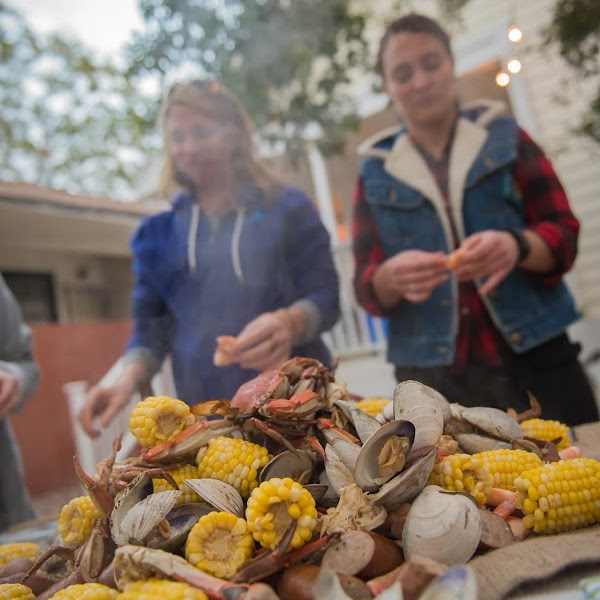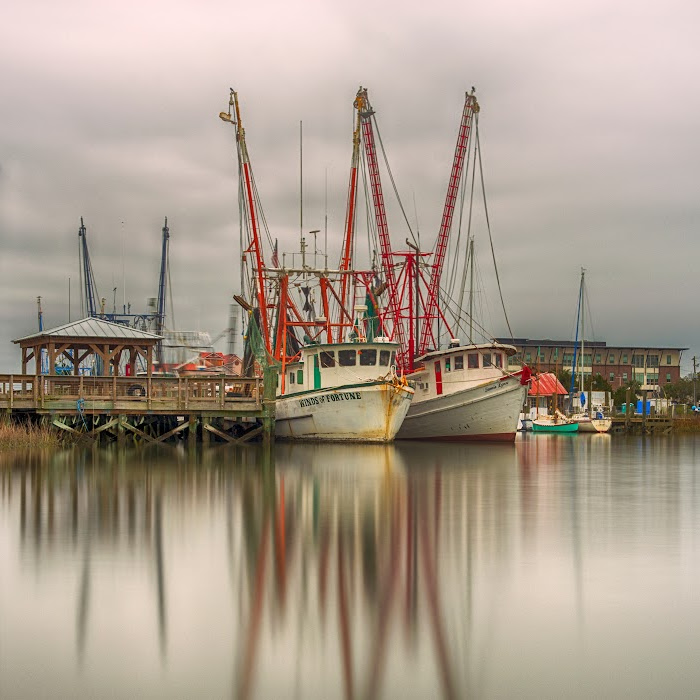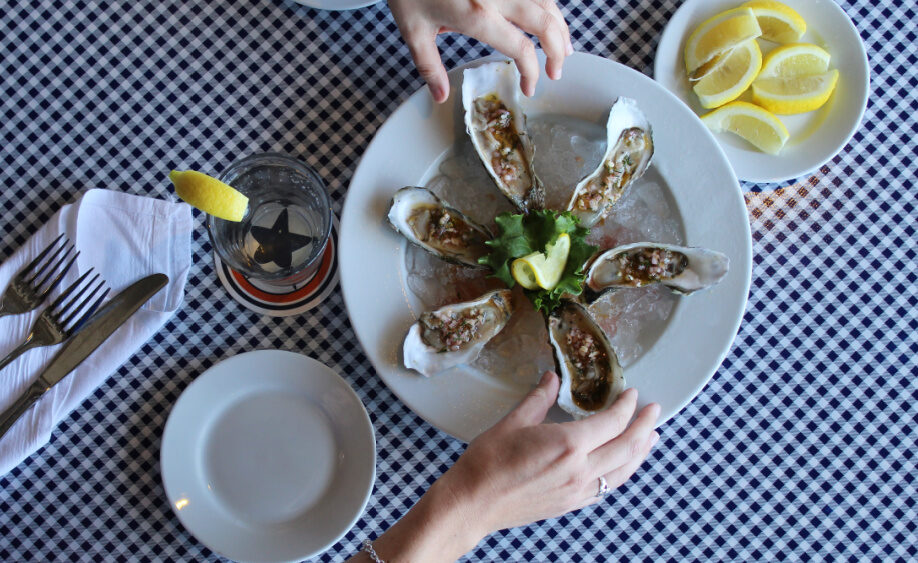October is here and so is National Seafood Month! In the Lowcountry, we’re welcoming the onset of cooler temperatures by cooking steamy seafood dishes, from serving a Lowcountry boil overflowing with shrimp to stoking the flames for an oyster roast. Many local restaurants join in too, with daily seafood specials incorporating twists on traditional dishes. Do you know where your seafood came from? Believe it or not, where seafood is sourced connects back to climate change in a critical way – and the best choice to make is what’s closest to home.

What’s Local?
We define “local” as seafood harvested from North Carolina to the east coast of Florida. Seafood harvested along this coastline is managed by multiple state and federal agencies that are charged with creating and implementing some of the strongest seafood regulations in the world. These regulations aim to ensure that each species harvested and sold is at the correct age, in the correct quantity and during the correct season. By sticking to these stringent guidelines, fishermen are not just collecting the ocean’s bounty for us to enjoy, but they’re ensuring they’re leaving behind a healthy, balanced ecosystem for future generations.
The Climate Connection
There can be a lot of moving parts and changing hands in the seafood supply chain. Seafood caught close to home travels shorter distances than seafood from overseas; sometimes it comes straight from the boat to local businesses, like seafood markets, grocery stories and restaurants! Because of the fewer food miles traveled, there are less emissions from transport (compared to seafood imported via planes or ships).

Seafood coming from overseas is also hard to trace, passing through numerous hands before reaching our plates. Traceability in your seafood supply is critical to ensuring that it was caught legally, sustainably and in the best interest of the ocean’s ecological balance as well as the health and safety of the workers who caught and processed it.
Unfortunately, global demand for cheap seafood has contributed to overfishing, illicit activities and iIlegal, unreported and unregulated (IUU) fishing. IUU fishing is often associated with forced labor and dangerous working conditions that also disregards maritime laws and environmental regulations – making it even more critical to choose seafood sourced close to home.
Ask Before You Order
Whenever you’re thinking of buying seafood, take the pledge to ask before you order! Remember, choosing seafood harvested closest to home has incredible benefits, including:
- Supporting your fellow neighbors, fishermen and aquaculture farmers who make a living sourcing sustainable seafood
- Lowering your carbon footprint, as seafood transported from the dock to the dining table travels fewer miles compared to imported alternatives
- Getting the opportunity to savor what the ocean provides for you seasonally and maybe finding a new favorite along the way
Happy National Seafood Month!
Published October 10, 2022


